The beautiful business of doing good
June 29, 2016
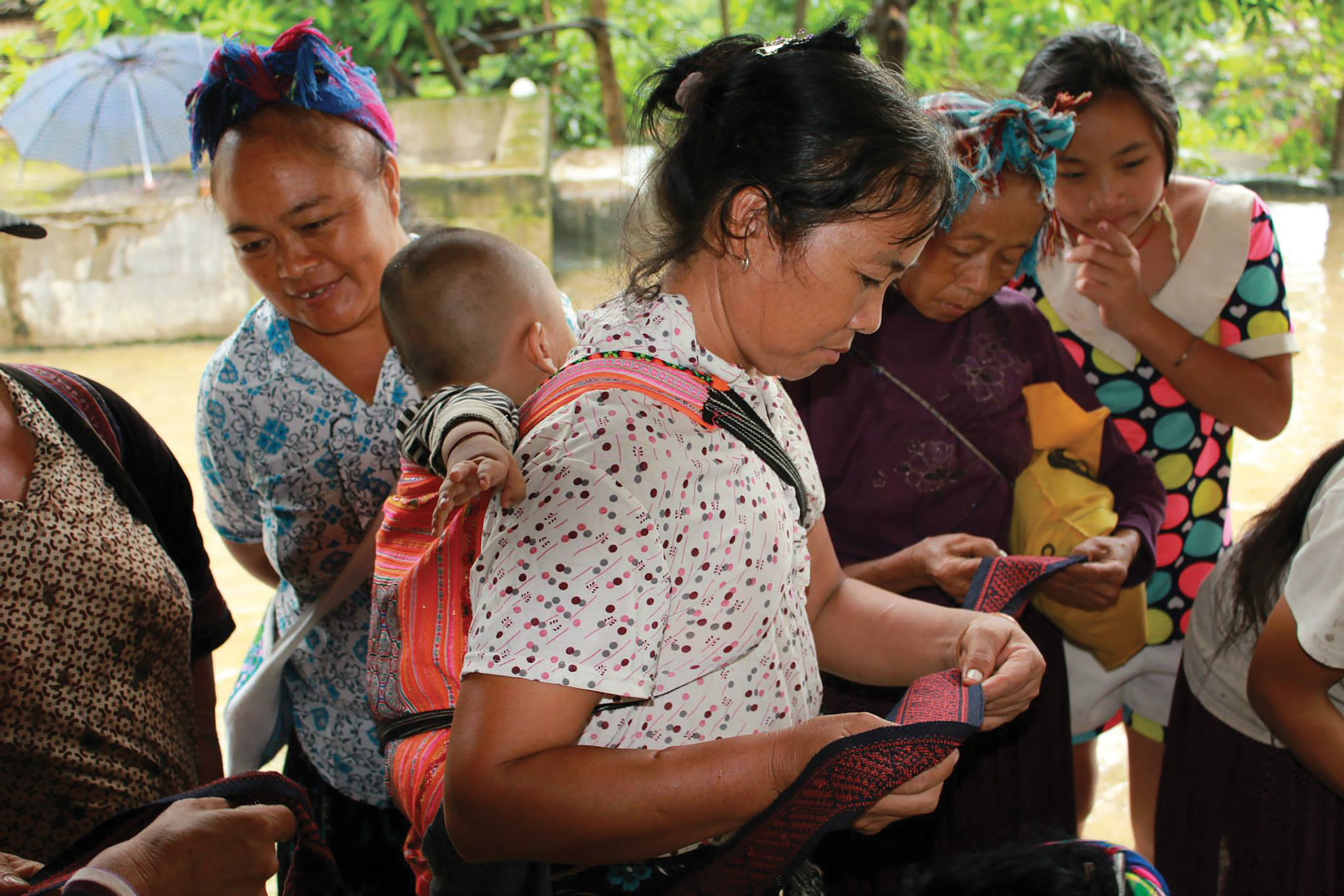
On the steep hillsides of the Yunnan province of southern China, near the Laotian border and 7,500 miles from the University of Wisconsin-Whitewater campus, the business of doing good is slowly repairing families frayed by hardship.
Ethnic Hmong women, who care for their children and grandchildren in remote villages, bear the weight of the region's crushing poverty. Caregiving and subsistence farming leave them place-bound and unable to trek six or eight hours to Kunming — the region's largest city — for work.
Hundreds of those women now wake with a sense of purpose and possibility because they have a means to provide for their families. The means — traditional Hmong cross-stitch — is a skill passed down through the generations and usually reserved for embellishing clothing. But now a vendor comes to the villages every few weeks to exchange patches of the painstakingly wrought cross-stitch for currency. The patches are then worked into high-quality goods such as purses and table runners and jewelry.
The joining of cross-stitch with sustainable jobs, best business practices and the growing market for authentic, ethically sourced goods is an idea with roots in Sheboygan and Germantown and nurtured on the UW-Whitewater campus. The result — an online social entrepreneurship startup called Ekantha — is based on the belief that making a meaningful difference is not just a side business, but one that can be fundamentally woven into the fabric of entrepreneurship.
Ekantha, which means "beautiful" in Sanskrit, was founded by Paul Ambrose, associate dean of the College of Business and Economics at UW-Whitewater, and his wife, Grace, lecturer in marketing at UW-Milwaukee's Lubar School of Business. The two, both born in India, eventually settled in Wisconsin, where they met Sheboygan native Bao Her through their church. Her is an ethnic Hmong who, with her husband, Jingsu, wished to improve the lives of the Hmong population in China. Ekantha's mission to "equip and empower the underprivileged to help elevate themselves and their communities" and its business model, based on the inherent assets and strengths in marginalized communities, fused seamlessly with the Hers' vision.
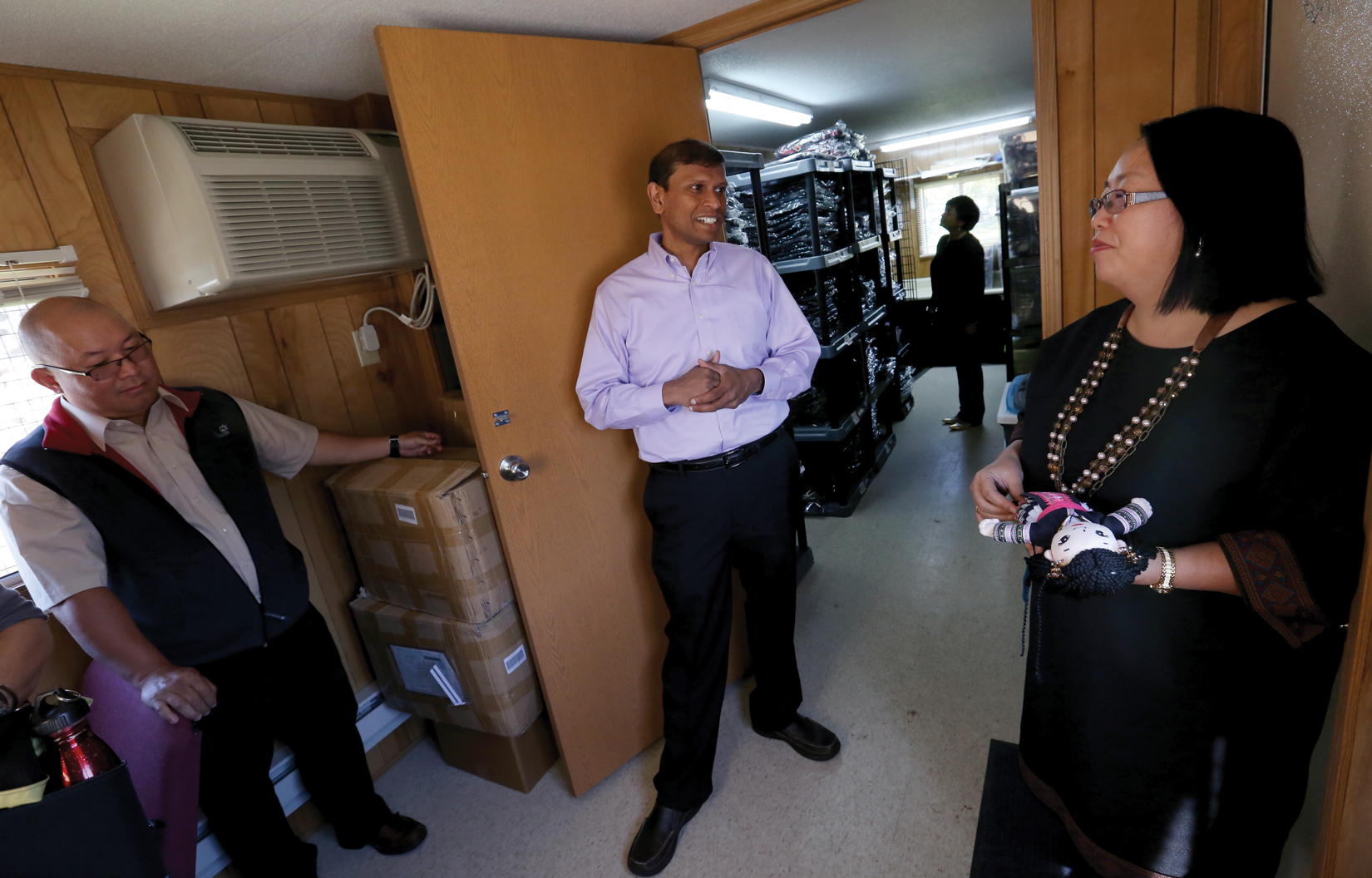
In Sheboygan, Bao Her observed people buying brightly colored traditional Hmong cross-stitch without knowing what they'd do with it — they were buying it out of compassion and a desire to help support immigrant communities. It was her insight to make the colors more muted and to blend the cross-stitch with the American craft of quilting. When she shared her first piece — a pillow covering — she was gratified to hear a Wisconsin woman say, "I can see that on my sofa right now!"
The Hers, who each earned a master's degree in business, first arrived in China in 2004 and set about learning the language. The goal was to set up shop in Kunming, a city of nine million people that is one of the fastest growing in China, and bring the Hmong workers there. But they soon found that many workers were not able to move.
They eventually settled on a business model in which they travel monthly to the remote mountain areas where the Hmong live, eight to 100 families to a village. There they pay cash for work that passes inspection and then hand out new kits with eight pieces of cross-stitch and the thread, pattern and needles needed to complete them.
In Kunming, the cross-stitch patches are fashioned into goods and shipped to Germantown, where they are warehoused in a rented jobsite trailer until sold. The Ambroses used Ekantha to create an e-commerce site, launched in October 2014, to start marketing and distributing the products, which earn Wisconsin sales tax. Dolls, jewelry and bags — some designed to hold iPhones — are the most popular.
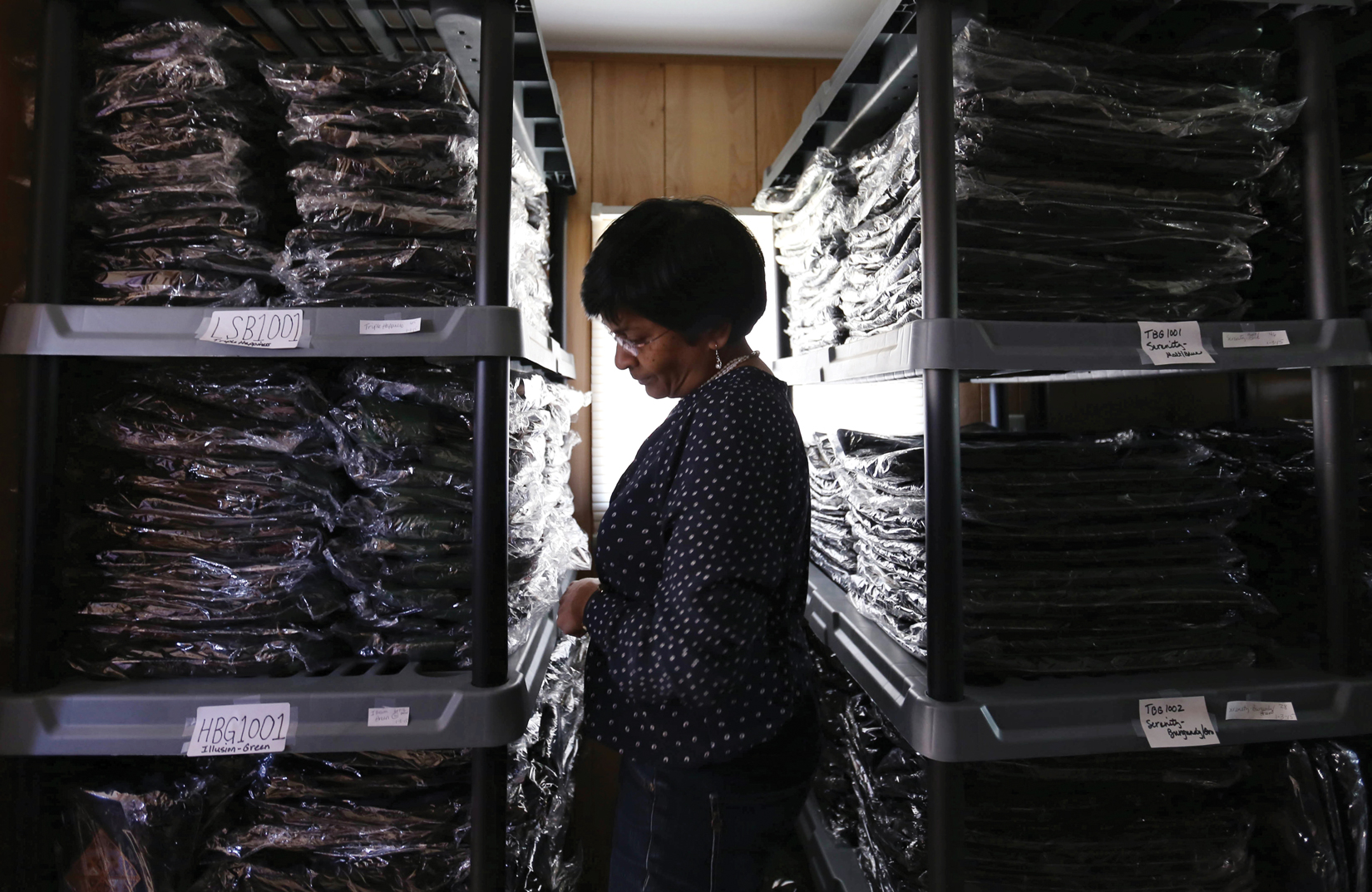
"If you buy an Ekantha product, there's a story behind it," said Paul Ambrose. Inspired by the socially responsible shoe company TOMS — whose motto is "one for one" and where every sale generates an act of giving — he is determined to position Ekantha so that it attracts people who will believe in its products and mission. The website, www.ekantha.com, is filled with vibrant images of Hmong villagers smiling and stitching and Jingsu's artful photos of the products.
The goods are also listed on Taobao, China's equivalent to Amazon, but the Chinese market is slow to appreciate their higher quality and higher price. The Hers and the Ambroses are determined to run Ekantha like a business — not a charity. Some of the Hmong women have learned how to match colors and are doing their own designs. One entrepreneurial worker amassed enough skills to leave and set up her own enterprise. The goal is to eventually hand the business off to local workers.
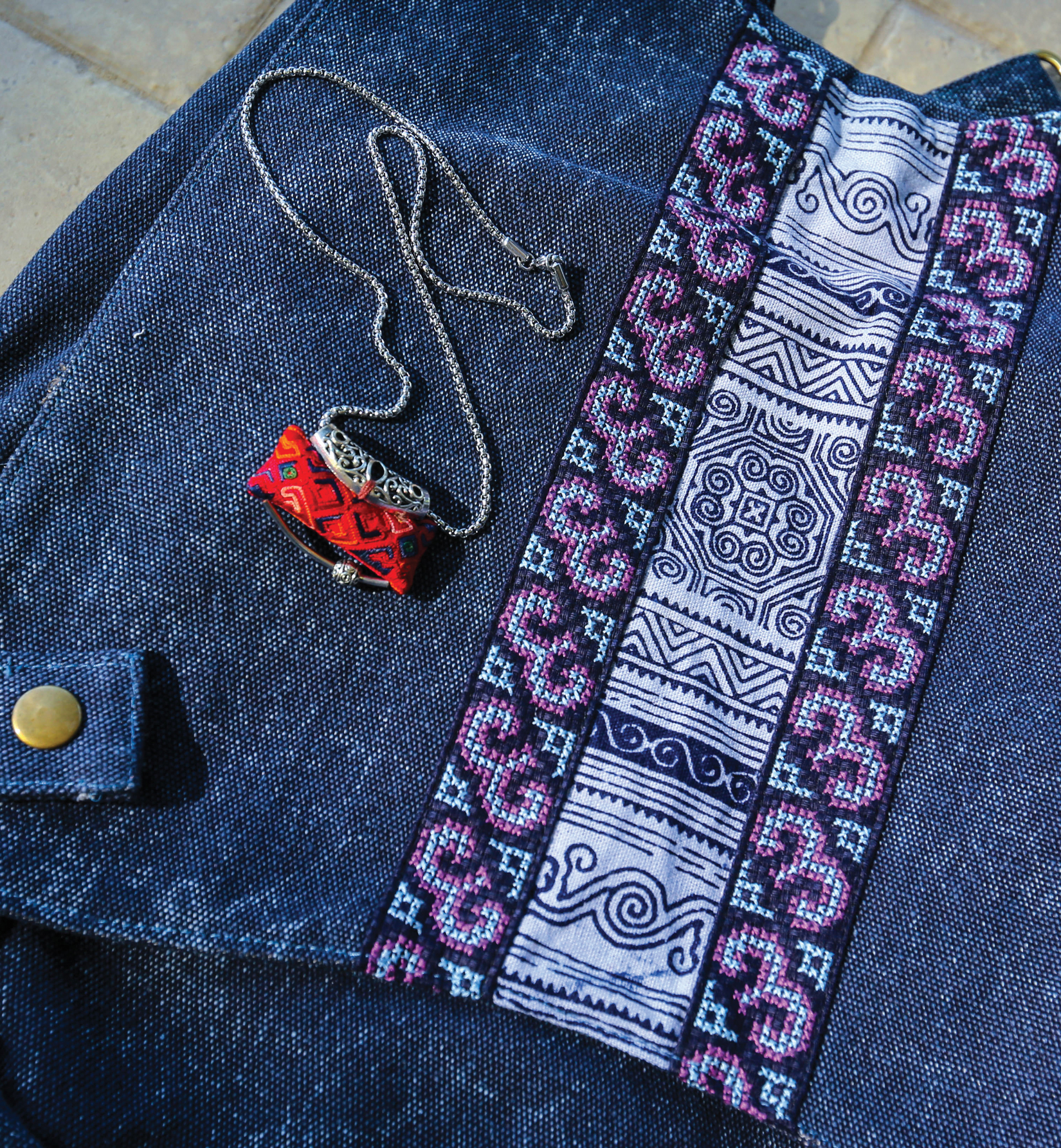
For the 60 or so women who produce cross-stitch for the company at a given time, being able to work out of their homes gives them a palpable sense of self-esteem. When one brought along her grandson to sell her cross-stitch patches, he saw her trade them for 2,000 renminbi, or about $325. He was impressed — and suddenly the work she did was elevated.
"Thank you for giving us this work," said another worker. "We feel so much more worthy. Our husbands respect us more."
Ambrose stresses social entrepreneurship, or the concept of combining entrepreneurship with the idea of making society better, in his classes, and he is interested in instilling the concept of giving back into all business school students.
"It isn't either/or," Ambrose says, referring to the idea that students have to choose between a practical degree in business or a job that meaningfully improves the lives of others. "Don't feel guilty about what you are blessed with. Use your gift for good."
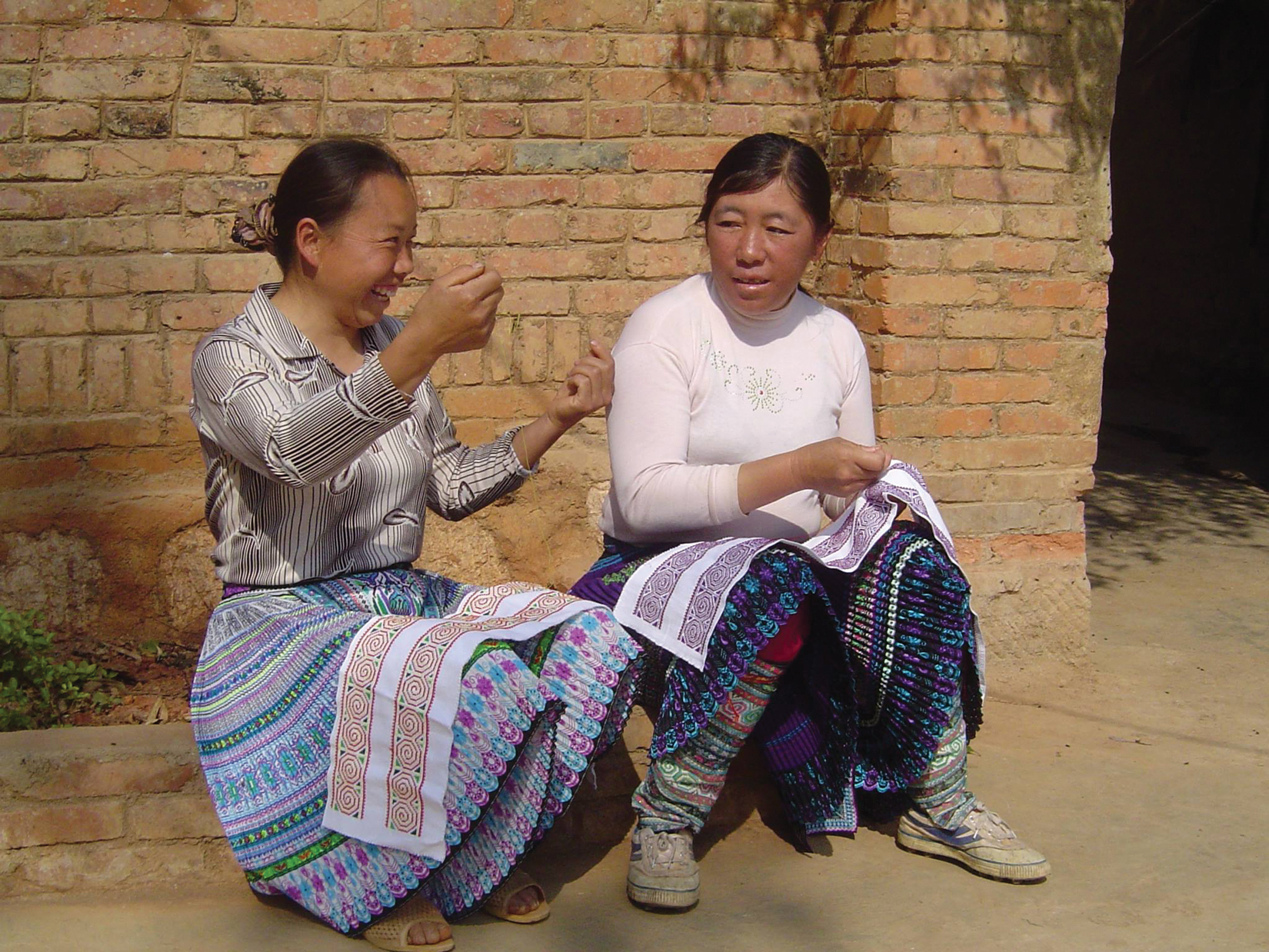
For inspiration, the professor only has to look at the faces of the Hmong villagers.
"We are so glad when we see the smiles on their faces, knowing that we are making a difference."
Written by Kristine Zaballos
Photos by Craig Schreiner
